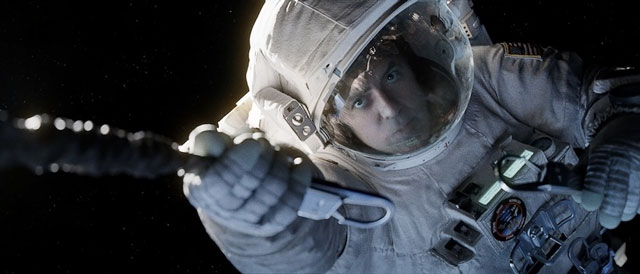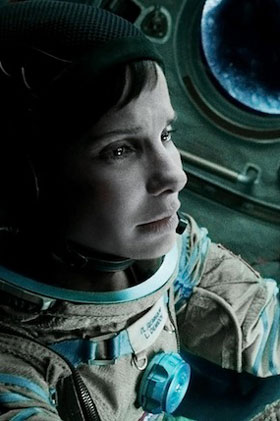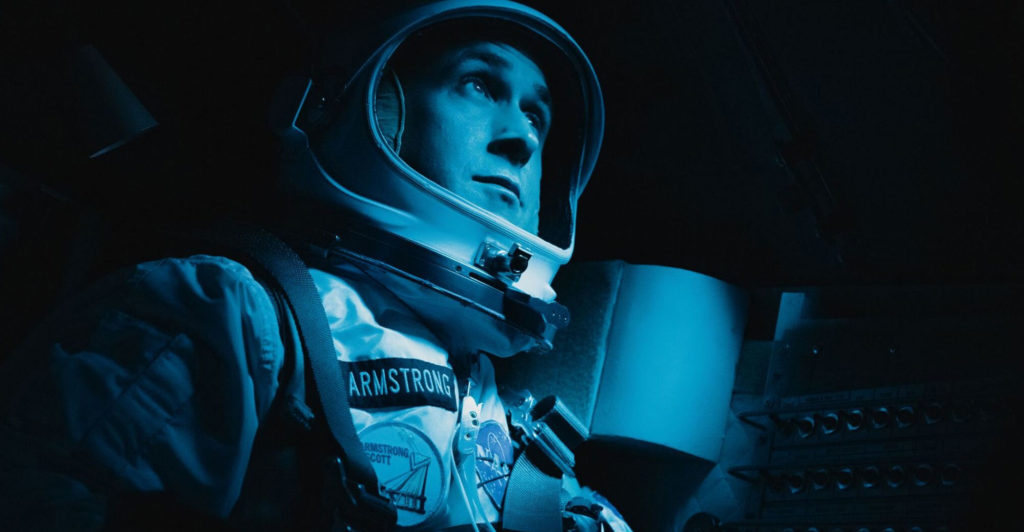
The most remarkable thing about Gravity, the new film from director Alfonso Cuarón, is how quiet it is for long stretches of its running time. Minutes go by where the only sounds you hear are radio chatter between its stranded astronauts and Houston — space is a vacuum, after all — and perhaps a few ominous notes of Steven Price’s taut score.
In a moviemaking industry that has spent the past decade cranking up the volume and amplifying the bombast, this is a blockbuster that is not afraid to let silence speak for it. Perhaps Gravity is a film of sensations rather than a dream house of ideas (it’s not 2001: A Space Odyssey in philosophical depth) but it is one that is so finely grained in its timbre, so textured that is hard to forget.
Gravity is a simple tale made extraordinary by Cuarón’s skill as a filmmaker as well as a performance from Sandra Bullock that is the best she has turned in in her career. It’s a film about a fight for survival far from civilisation, an air crash or shipwreck film set in the void of space. Gravity is a film that speaks to the most primal emotions — grief, the will to survive, the terror, loneliness and wonder of life.

Veteran astronaut Matt Kowalski (George Clooney) and rookie Ryan Stone (Bullock) are stranded in space when their shuttle is destroyed and crew are killed by a swirl of debris. They conceive a desperate plan to reach the International Space Station again before the field of debris comes into their orbit or they run out of oxygen.
Cuarón’s approach to this tale is barebones to the point of minimalism, making for a deft, economic 90 minutes of film time. There’s no footage of fretting family members or of a bold rescue plan coming together on earth. We spend the film entirely in the company of the two astronauts, the vast desolation of space, and until communications are cut off, Ed Harris’s voice (a callback to his roles in Apollo 13 and The Right Stuff) as the ground controller.
Cuarón hasn’t made a feature since his 2007 science-fiction classic Children of Men (in the same time Michael Bay has made three), but Gravity is likely to be every bit as influential as that film. Save for Pacific Rim, you will not see a better-looking big-budget film this year. It’s that rare film that is enriched by the subtle deepening of every frame with 3D.
Gravity is full of long takes as impressive as the ones in Children of Men; this is a film that slowly draws every breath out of your body with its sustained tension. The special effects, especially those used to bring long takes in zero gravity to life, are cutting edge and place you at the edge of space, impenetrable blackness one direction and the warm, inviting embrace of the Earth in the other.
Clooney turns in a characteristic performance as the competent Kowalski, a laidback professional who spins homely yarns in a warm drawl as he faces the blackness of space and inevitable death. It’s not a role that taxes him, it’s simply one that asks him to do what he does best. Gravity really belongs to Bullock, however, giving her one of the best female lead roles of the year.
Gravity trailer:
Angelina Jolie and Natalie Portman, who both rejected the part, must be kicking themselves. But it’s hard to imagine anyone besides Bullock bringing the same mixture of warmth and grit to the part. In long stretches of the film, she has no one to play off besides herself; often, she’s working against schmaltzy dialogue. It is thanks to Bullock that Stone’s journey from depression to determination is as compelling as the effects wizardry.
Gravity drops onto South African cinema screens burdened by the weight of so much hype that I’m wary of overpraising it. But it is one of the best blockbusters of the year, and a film that demands to be experienced in the cinema with the biggest screen and the best sound system you can find. — (c) 2013 NewsCentral Media
Read more:
- What Gravity gets right and wrong about space
- Gravity director Alfonso Cuarón reveals studio pressure to change story




